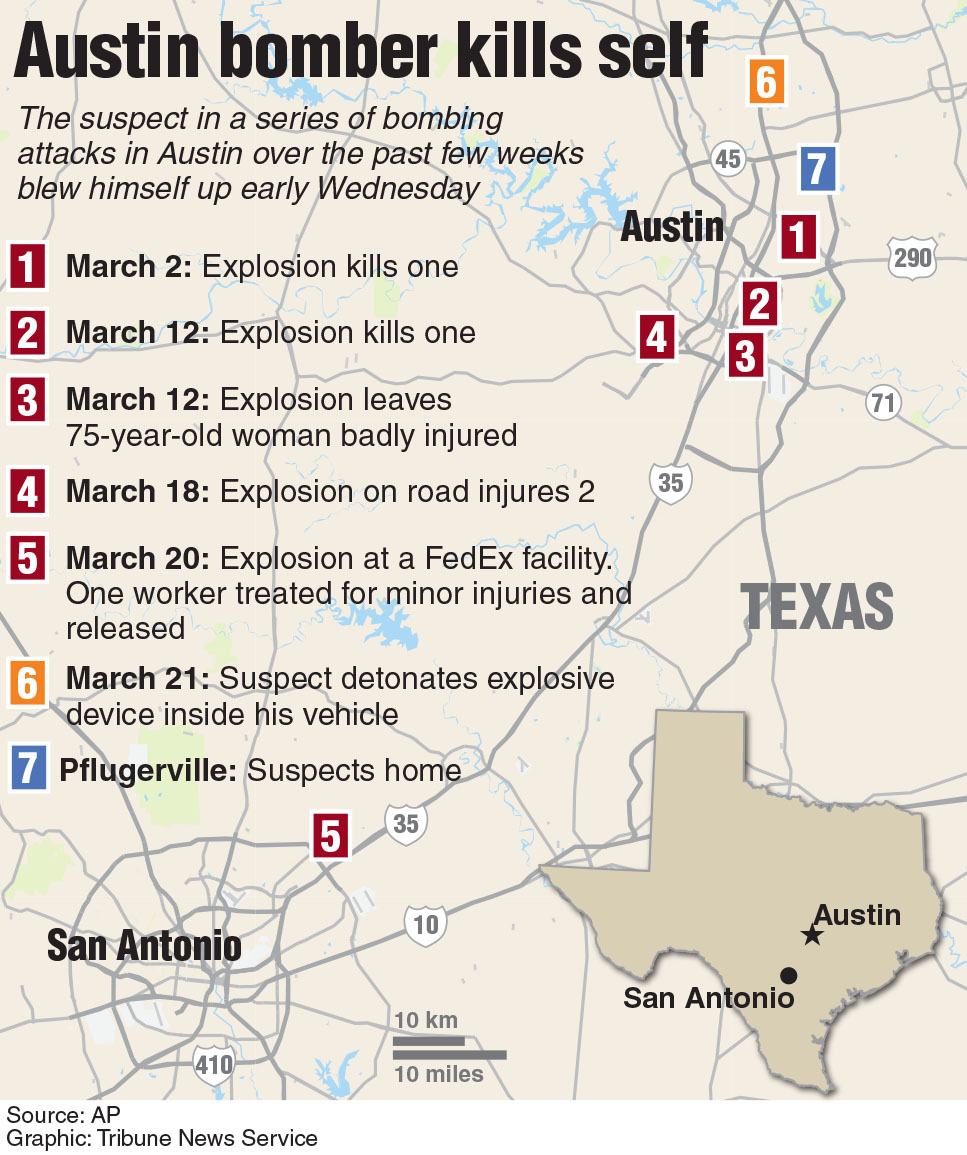When he looks back at what the Austin bomber “did to our community, he was a domestic terrorist for what he did to us,” Interim Austin Police Chief Brian Manley said at a panel discussion Thursday that focused on how police, the media and the community responded to the Austin bombings.

Updated locator map of Texas bombings.
“This is a distinction I wanted to make today,” Manley said. Knowing the case would be in the legal system at some point, he said, he was trying to be sensitive about the terminology he used during the investigation.
“I was so focused that we put a stop to it,” the chief said, but now he says he comfortable calling the bombings domestic terrorism “for what it did to our community.”
The nephew of Esperanza Herrera, a 75-year-old woman critically injured by a package bomb March 12, was one of about 100 people in the audience who attended the discussion hosted by KUT-FM at the George Washington Carver Museum in East Austin.
Zeke Prado said that while the city has banded together, he was not happy with how the bomber, Mark Conditt, was initially characterized.
“He terrorized the city of Austin,” Prado said.
Another audience member, Kristina Brown of Counter Balance ATX, said Manley’s admission that the bombings were the work of a “domestic terrorist” was “too little, too late.”
“We don’t know, we will not know what that qualification more early in the investigation would have done, what resources would have been provided to make sure that more lives were not lost,” Brown said.
The panel also explored the apparent racial tensions that some community leaders said were exposed by the bombings and the investigation. The first three victims were black or Hispanic, leading some neighbors to worry that the attacks were racially motivated.
Austin Justice Coalition leader Chas Moore said a different standard had been applied to Conditt, a white resident of Pflugerville.
“The way the media covered this story, this ‘troubled young man.’ Was the young man troubled? Absolutely. But he was a troubled young man that turned out to be a terrorist,” Moore said.
“Because he was white, we gave him the benefit of being a human first,” Moore said.
He also told the audience that it was a “myth” that Austin is a “big, beautiful diverse pie.”
“Our white brothers and sisters are going to have to learn how to be comfortable while being uncomfortable talking about race,” Moore said.
———
© 2018 Austin American-Statesman, Texas
Distributed by Tribune Content Agency, LLC.



